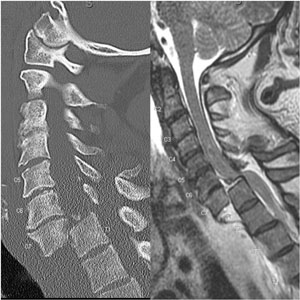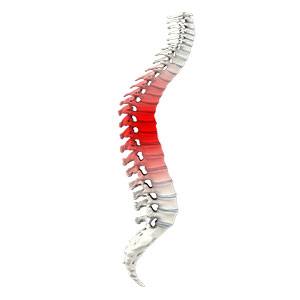
Complex Cervical Spine Trauma

What is Spine Trauma?
Spine trauma is defined as an injury or damage to any region of the spine. The spine extends from the neck to the lower back and consists of the vertebral bones which surround and protect the spinal cord. Damage to the spinal cord or spinal nerves can cause changes in sensation, strength, and other body functions. Dr. Donnally trained at one of the busiest spinal cord injury referral centers in America where a significant portion of his training was dedicated towards managing patients with spine injuries.
Causes of Spine Trauma
Spine trauma can cause damage to the vertebrae, discs between the vertebrae, ligaments of the spine or the spinal cord. It is often caused by:
- Motor vehicle accidents
- Falls
- High impact sports
- Shallow water diving activities
- Incidents of violence such as gunshot or stabbing
Treatment of Spine Trauma
Treatment for spine trauma depends on the location and extent of the injury and its impact on the nerves and other surrounding tissues of the spine. Some of the common treatment options include:
- Immobilization to stabilize your spine and traction to bring the spine into proper alignment using a neck collar, special bed, etc.
- Medications to manage effects of spinal trauma such as pain, muscle spasticity, etc.
- Surgery in cases of fractured vertebrae, herniated discs, etc.
- Rehabilitation for maintenance and strengthening of muscle function, improving fine motor skills, and learning adaptive techniques for activities of daily living
Newer experimental treatments aim at controlling inflammation, stopping cell death, and promoting nerve regeneration.
Prevention of Spine Trauma
Spine trauma often occurs due to unpredictable events, so the only way to prevent spine trauma is to follow certain precautions and promote spine health through measures such as:
- Wearing suitable protective gear during sports activities
- Wearing a seatbelt while driving
- Avoiding shallow water diving
- Moderate weight-bearing and strength-building exercises
- Taking calcium and vitamin D supplements












